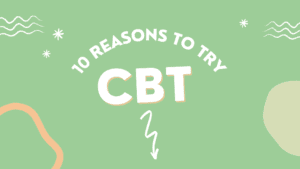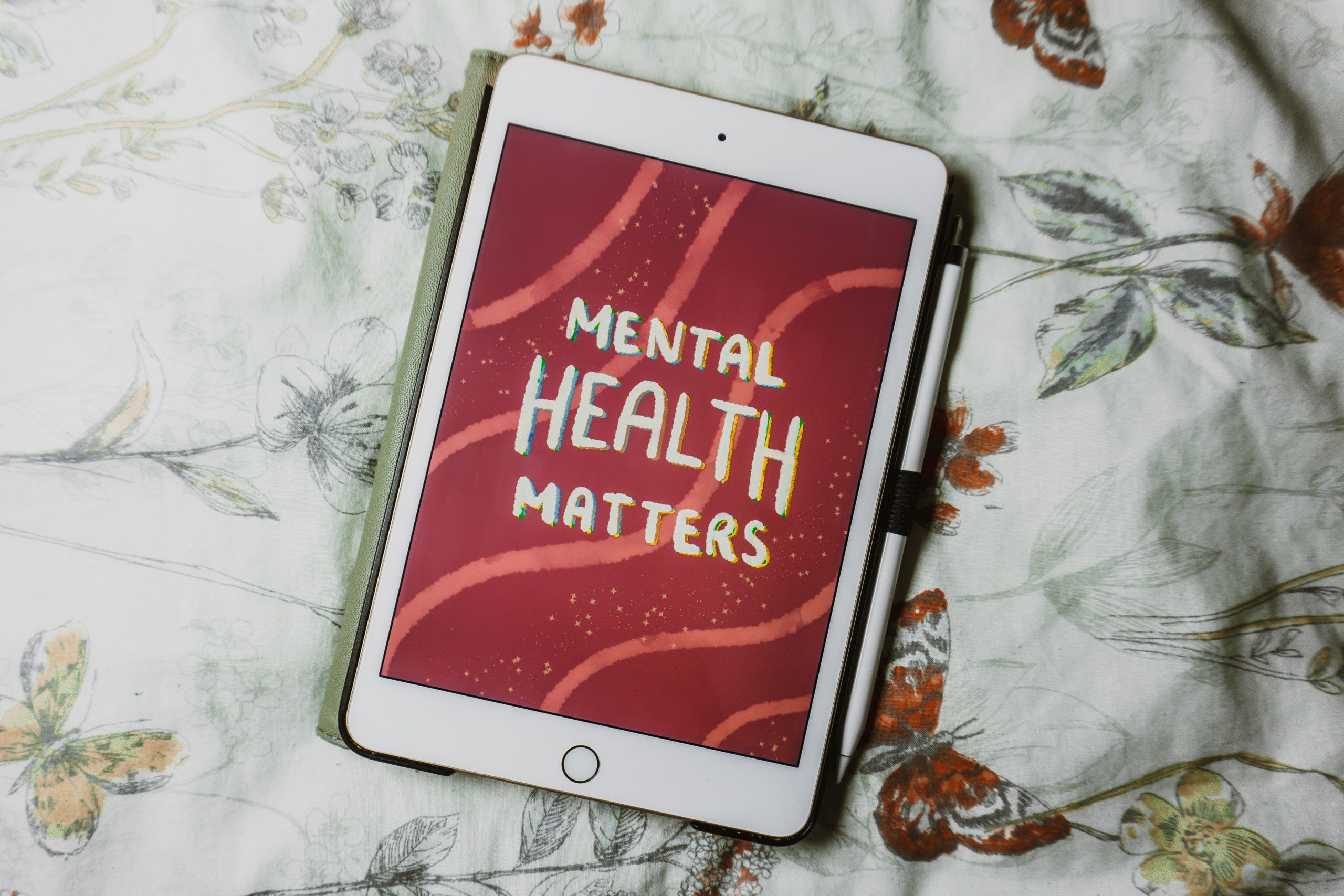Perhaps you have heard about Cognitive Behavioral Therapy, also known as CBT. Have you ever wondered what makes CBT unique compared to other types of therapies that are offered? If so, you are in the right place! In this article we are going to explore the different components of Cognitive Behavioral Therapy.

#1 CBT Focuses on How Thoughts, Feelings, and Actions are all Related
Let’s use an example to demonstrate this one. Let’s say you have a fear of airplanes. You are offered to go on vacation to somewhere very far, and the only mode to get there that logistically works is to fly. You may think to yourself, “planes make me feel unsafe” and begin to feel on edge. Because you are hesitant to get on the plane, even though you may like the destination, your action is you decline to go on the trip.
In Cognitive Behavioral Therapy, we discuss the links between that thought, how you feel, and what you do.
#2 Of the Three Thoughts are Heavily Emphasized
The term “Cognitive Behavioral Therapy” starts with the word “cognitive” which means your thoughts. This is purposeful. In CBT, we heavily emphasize thoughts, as they are believed to be the root of the identified problem. Using the airplane example from before, it isn’t because the airplane is actually dangerous, it is because you think it is unsafe. While you may be aware of the feeling (in this case nervousness first), you are still experiencing the thought or your association first, whether you are fully aware of it or not.
#3 Cognitive Behavioral Therapy is Collaborative
Many people enjoy CBT as it offers a chance to collaborate with your therapist. What exactly does that look like? You have great amounts of input in identifying what you want to discuss, what your goals are, and coming up with ideas of ways to implement strategies. It is often encouraged in Cognitive Behavioral Therapy for clients to provide feedback to their therapists, so that we know how we can make your experience better. In CBT we are working with you and for your needs.
#4 CBT Uses Worksheets
Far from being school-like, worksheets are used in Cognitive Behavioral Therapy to help process emotions and experiences. This is a fantastic way for people who are linguistic or visual learners to experience the therapeutic process. It is also a great way to bring the session into your regular life as a self-guided practice in between sessions. Here at online-therapy.com , we use worksheets in our program on our platform where providers can give feedback on your sheets in between sessions to keep the experience flowing.
#5 CBT Uses Action Plans
Action plans are strategies and techniques for you to try in between sessions. What an action plan will look like for you will depend on what you are coming to care for. Some common examples of strategies that may be included in action plans are engaging in activities you enjoy or have previously enjoyed, mindfulness exercises, affirmations, exposure practices, and evaluating your thoughts. As I mentioned previously, Cognitive Behavioral Therapy is very collaborative. Your provider will ensure that you feel comfortable with any strategy on your action plan, and you will have input on what goes on that plan. Since the action plans can vary so much to individual needs, it is best to consult with your provider or book an appointment with a therapist and ask about what an action plan might look like for you.
#6 We Equip and Train You with Strategies
Just like how a personal trainer teaching you a workout plan custom tailored to your needs so that you can go out and practice, Cognitive Behavioral Therapists do the same with your mental health. We teach you how to be an expert in you so that you know how to monitor, regulate, and deescalate yourself. That way, if we aren’t there in the moment to assist, you are equipped with the tools and strategies right for you.
#7 CBT is A Strengths-Based Approached
A strengths-based approach is when we, your therapist, emphasize all of the strengths and positive resources you have. No matter what you are coming to therapy for: depression, anxiety, OCD, ADHD, etc. you have many strengths, perhaps more than you even realized at first. We are here to help you use those strengths and resources to your advantage.
What if it feels like you do not have many strengths or resources? That’s normal to feel that way. However, we will help assess the strengths you do have, and by the time we go through all of them, you may just be pleasantly surprised.
#8 Cognitive Behavioral Therapy Emphasizes the Present Moment
It can be very easy to be worried about the future or ruminate about the past. In Cognitive Behavioral Therapy, we often focus on bringing yourself back to the present moment and finding safety in the moment. That doesn’t mean we ignore the past or the future. If something impactful happened in your past, such as a traumatic event, that still affects you- we will still of course discuss that at your comfort. If something is coming up, like a social event that makes you nervous, we will help you plan and prepare for it.
#9 Cognitive Behavioral Therapists Are Flexible
A big part of Cognitive Behavioral Therapy is finding what works well for you. Cognitive Behavioral Therapists acknowledge that not every strategy works the same for everyone. A certain breathing exercise may work well for person A but not person B just like how a worksheet may be more effective for some more than others. If you try a strategy a few times and find it really isn’t working well for you, your therapist will be willing to pivot and try something that may be more effective based on your feedback.We want to give you the best quality care, so do not feel hesitant to voice when something isn’t working well!
#10 CBT Believes in Mind-Body Connection
Mind-body Connection can take on a few forms. Perhaps this will look like meditation, exercise, or other mindfulness strategies. Since Cognitive Behavioral Therapy discusses the connection between thoughts, feelings, and actions, we want to link together the mind and body so that everything is cohesive with each other.
Cognitive Behavior Therapy Summary
There are many ways in which CBT is a unique form of therapy. From collaboration to training, we want to make sure you feel empowered and in the driver’s seat during your therapeutic journey. We also want to make sure you have the tools and strategies you need in between sessions so that you can get the best results. Lastly, we want to explore mind-body connection because of CBT’s emphasis on the connection between thoughts, feelings, and actions.
Next Steps
If Cognitive Behavioral Therapy sounds like a good fit for you, we would love to be a part of your wellness journey. Our team of therapists emphasize CBT in their practice and would like to collaborate with you on your goals and needs!




Leave A Comment